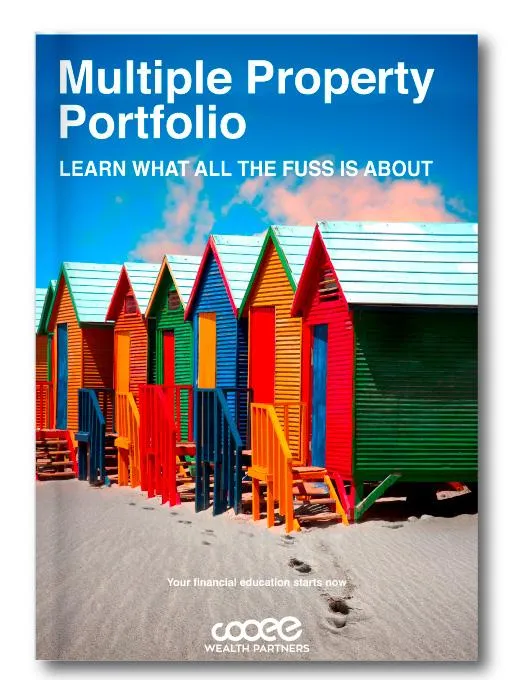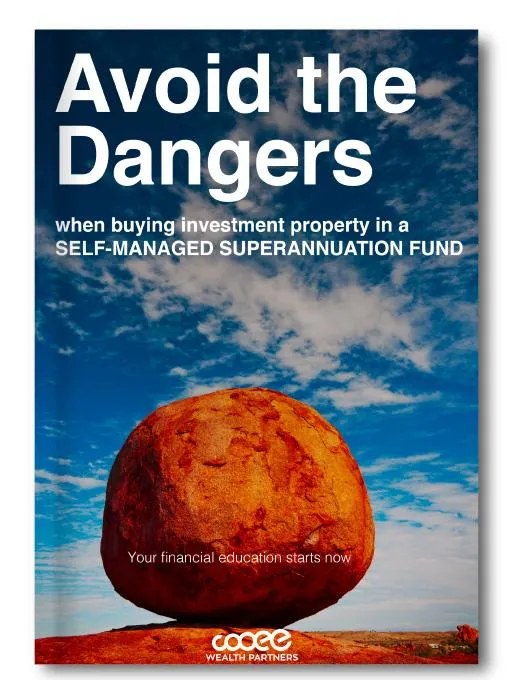Helping You Achieve
Your Goals With The
Highest Degree Of Certainty
Helping You Achieve
Your Goals

500+
Families helped

75+
Collective Experience

100%
of Clients Made Positive Changes

$185 million
Funds Under Management
We Specialise In
Total Wealth Management
Exclusive Property Strategies
Our Property Partners Have A Network Of Private Investment Opportunities
Instead Of Going To property Gurus
or so-called experts.
Get Specialised advice that Works with your tax, super, and wealth strategy.
You Know You Need An Adviser...
So What's The Cost of
Doing Nothing?
Working for longer than you have to...
Missing out on time with your kids...
Missing out on time with your grandkids...
All the guessing and worrying...
so let's find out.
Why Trust
Cooee Wealth Partners?
Because It’s Time To Seek Financial Advice From Experts
Deep Dive Before You Decide
We uncover every opportunity to maximise your wealth, before you commit a cent.
No hidden commissions
Just honest advice that works for you. Transparency in simple terms right from the start.
Zero Cookie-Cutter Strategies
Your financial future deserves more than off-the-shelf solutions. We create a blueprint built for your goals.
Real Results, Real Fast
We don’t believe in waiting years to see progress. Start seeing tangible improvements in months.
Hear What Our Clients Say
Real Stories, Real Results
Patrick Vidal

I have found Cooee Wealth Partners to have a varied and a variety of ideas to help build wealth and reduce debt. They have people that work in a lot of different areas of the business ready to assist and work together to achieve the best outcome. Samantha Obeney who has taken on our portfolio is more than happy to work with us and is working hard to ensure we meet our goals and in the timeframe we are looking for. I recommend Cooee for anyone wanting help with their finances.
Kim Attwells

Andrew and the Cooee Wealth team have helped us over the past 5 years with our superannuation and investments. We have found them patient and always communicating with us whenever needed, giving us confidence in building our future financial needs.
Rob Halliday

I have had excellent advice over more than 15 years which has combined a cordial relationship, financial education and timely implementation.
Nikita Alberts

We started working with Andrew Grinsell at Cooee Wealth Partners over a year ago. To call us cynical about trusting a financial advisor with our super, financial advice, insurances etc would be an understatement - so many horror stories about so many advisors. Well we could not be happier that we met and trusted Andrew. His advice is well thought out and grounded. And it is well on the way to providing us with a lifestyle that we only dreamed we could have in a distant future.
Our 4-Step
Wealth Partnership Process
01
Deep Dive Discovery
Get the hard work out of the way so we can build the Strategy you need now.
03
We Manage The Worry
Get back to life and we will check in with updates so you know everything is on track
02
Your 'Right' Strategy For Now
Get all the details of how your new Strategy will start maximising your wealth right away.
04
Do What You Want
After getting in right for years, see the effects in full when you can actually do what you want rather than what you need to do.
It's Only As Complicated As You Make It.
Answers To Your Burning Questions
How much does it cost?
It depends on your goal, what made you start looking? We can go as deep as you need. Our team helps young families with the basics, or sophisticated investors with private deals and exclusive access to our development partners. Your strategy will evolve over time as we take you each new level of financial success.
It’s All Too Complicated...
If that's you, you are right! That's the entire point in having a financial adviser in your corner. Everyone understands teamwork in sports but the same goes for your finances. We have the qualifications and decades of experience to see the twists and turns before they come.
Yes, we build a strategy for now but we continuously check up to ensure it's still the best strategy for tomorrow.
Is my situation too simple (or too complicated) for you to help?
There’s no such thing as “too simple” or “too complicated” for us. Whether you need a straightforward strategy or a total overhaul of your financial situation, we’ll build a plan designed to exceed your current one. This is our bullet-proof Guarantee.
I’ve heard financial advice can be expensive. Is that true?
It’s an investment, but one that pays for itself many times over. At Cooee Wealth Partners, we pride ourselves on 100% transparency. You’ll always know exactly what you’re paying and, more importantly, the value you’re getting in return.
What if I don’t like the advice?
We’re confident you’ll love the value we bring. But if you feel it’s not the right fit, there’s no pressure to proceed. And remember, if we can’t add significant value, there’s no fee.
How does financial advice influence Australians' confidence in having enough money for retirement?
Advised pre-retirees are twice as confident that they will have enough money for retirement compared to their unadvised counterparts (52% vs 26%). Source Link
What's Right For You Today?
Meet Our Team
The Wealth Team

Jason Russell
Practice Manager

Gwen Padecio
Paraplanner

Angel Bacolod
Financial Planning Assistant

Dhebbie Koreen Berbisada
Financial Planning Assistant

Suzuart Sulla
Financial Planning Assistant
Leadership Team
Finance Team

David Wewer
Finance Manager

Lancelot Lintag
Finance Assistant
Accounting Team

Richard Lather
Head of Accounting & Tax

Aubrey Vizcarra
Administrative Assistant

Christine Delos Santos
Accounts Manager
How To Get Started On Your Own





Speak To The Team
1800 297 088
Suite 2, Level 1
9-11 Grosvenor Street
Neutral Bay NSW 2000
© 2024 Cooee Wealth Partners - All Rights Reserved,
Licensed by AFSL Licensee Pty Ltd (AFSL: 518453)



